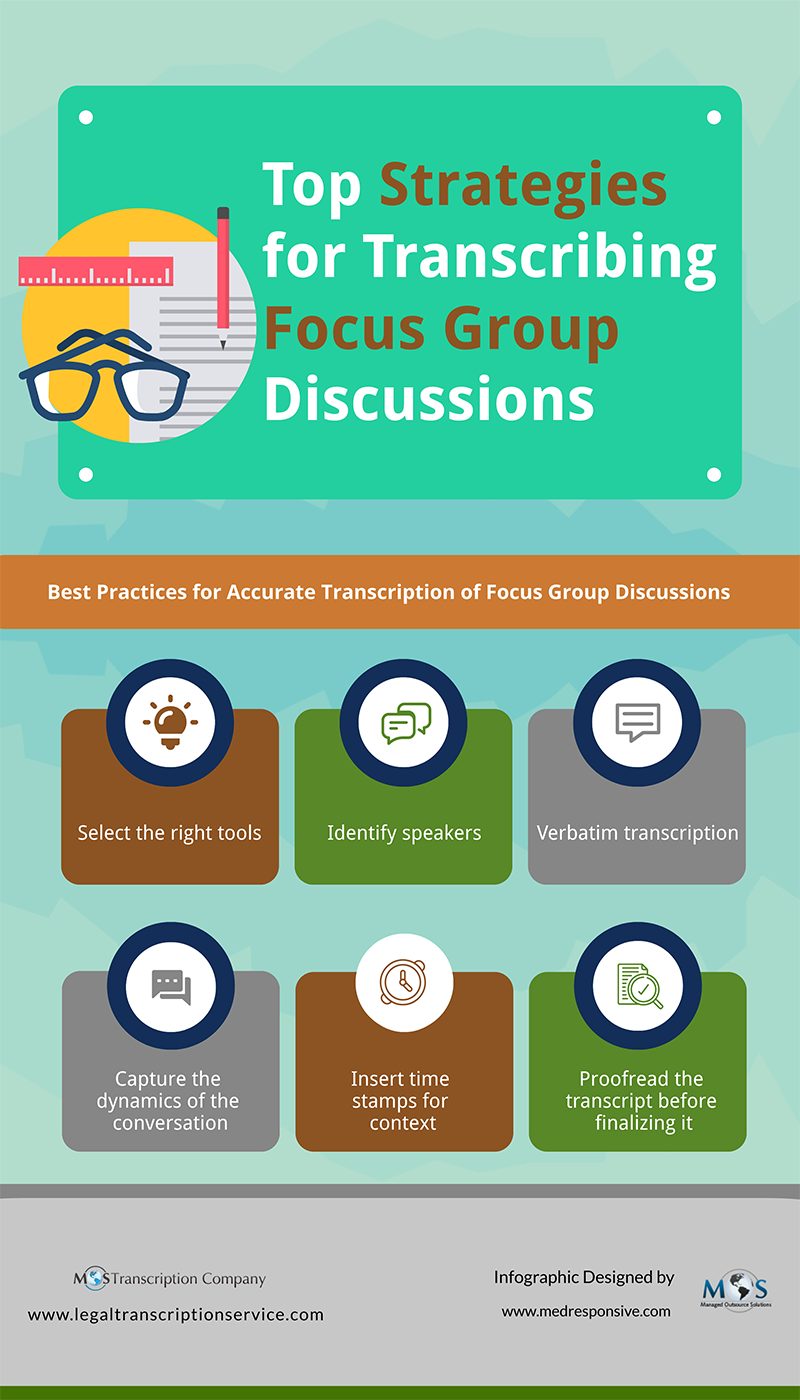
Focus groups are a widely used tool to collect data for market research and educational studies. This group interview method is a quick and convenient way to obtain information and opinions simultaneously from a carefully selected group of people. Focus group transcription service providers convert the audio to accurate text which is necessary to preserve the information for analysis, sharing and repurposing. Transcripts can create an accurate record of what the participants said during a focus group session.The best way to have focus group discussions transcribed is by entrusting it to professional transcriptionists.
Benefits of Focus Group Transcription
- Provides a detailed account of participants’ responses, facilitating in-depth analysis.
- Enables researchers to identify patterns, trends, and recurring themes within the group discussion.
- Serves as a reliable source for verifying and cross-referencing data, enhancing research credibility.
- Provides a more nuanced and insightful interpretation of participant perspectives.
- Captures non-verbal cues, tones, and emotions, contributing to a more comprehensive understanding of the context.
- Offers a transparent record of the original dialogue, ensuring research integrity.
- Facilitates clearer and more accurate reporting of findings, supporting effective communication of research outcomes.
- Enables researchers to compare and contrast responses across different focus groups, enhancing the depth of analysis.
- Allows shared information among researchers, fostering collaboration and collective insights into the data collected.
- Provides a valuable resource for future reference and further exploration of specific discussion points.
Strategies to Improve the Focus Group Transcription Process
Transcribing Focus Group Discussions: Key Considerations
- Stick to verbatim: Every word spoken by the participants in the focus group should be recorded and transcribed as it is. All non-verbal utterances like umm, throat clearing, laughter, applauses, background noise and even silence should be recorded.
- Listen carefully: Focus group sessions are not organized or disciplined. This is because participants tend to talk simultaneously, get into arguments and talk over each other, speak really fast, and sometimes turn away the microphones etc. Keen listening skills and the capability of understanding various styles of speaking are important for accurate transcription.
- Don’ t make major edits: Do not make major corrections while transcribing. Take down every detail of the discussion without correcting any grammatical errors or mispronounced words. If you find it difficult to understand certain words, provide the correct spelling or pronunciation in brackets.
- Know the speakers: A focus group discussion typically has 7-10 speakers including the moderator, and it may be difficult to identify who said what. Identify the names of the members participating in the session. Generally, the members are identified as “Participant” and “Moderator”.
- Ensure confidentiality: Keep in mind that confidentiality is important for people to express their opinions freely. Assign identifiers like Participant A, and so on rather than names. Advanced speech recognition software like Temi is designed to mark the change of every speaker and label them based on your needs.
- Insert time stamps: Using time stamps in the text where you find words that are difficult to understand will help the end users identify the part on the audio while editing. Many participants speak simultaneously in the discussion and so the discussion is inaudible sometimes, and using stamps on such parts could help.
Focus group transcription is one of the most challenging transcription types, as there will be some background noise, talking over each other, cross communications and other distractions that make transcription difficult. An experienced online transcription company can ensure accurate documentation of these discussions within your required turnaround time.
Get tailored focus group transcription services to meet your specific research requirements.




